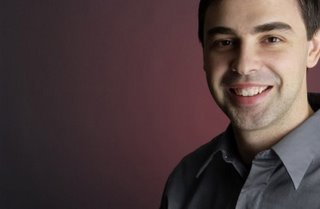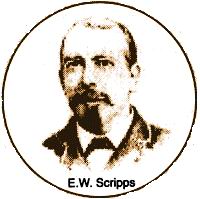Larry Page

. 1973 - .
Lawrence Edward "Larry" Page (born March 26, 1973 in Lansing, Michigan) is an American entrepreneur. Page studied computer engineering before co-founding the Google internet search engine, now Google Inc., with Sergey Brin.
Early life and education
Page attended a Montessori school and graduated from East Lansing High School. Page holds a Bachelor of Science degree in computer engineering from the University of Michigan with honors and a Masters degree from Stanford University.
According to his personal website, now archived, his office was in the Gates Computer Science Building.
Larry Page is the son of the late Dr. Carl Victor Page, professor of computer science and artificial intelligence at Michigan State University and Gloria Page, a computer programming teacher at Michigan State University.
Business
While a student in the Ph.D. program in computer science at Stanford University, Page met Sergey Brin. Together they ran the Google search engine, which began operating in 1998.
Google is based on patented PageRank technology, which relies on the structure of links between web sites to determine the ranking of an individual site. Page is still "on leave" from the Ph.D. program.
Page ran Google as co-president with Brin until 2001, when they hired Eric Schmidt to become Chairman and CEO of Google. Page now runs Google as a triumvirate along with Brin and Schmidt.
According to Forbes in September, 2006, Page had an estimated net worth of $12.8 Billion, making him the 27th richest person in the world, one place behind co-founder Brin. Page and Sergey Brin recently purchased a Boeing 767 airliner for their business and personal needs, which was to be, according to the words of Eric Schmidt, a "party airplane". The plane's interior was supposed to be redesigned by aviation designer Leslie Jennings, but a legal battle between the designer and the holding company that owns the plane stalled the renovation. The plane would hold about 50 passengers when refurbished, and would include a California King Size Bed.
The World Economic Forum named Page as a Global Leader for Tomorrow. The X Prize chose Page as a trustee for their board.
Long Live Larry! Long Live Google !!!
Peace

